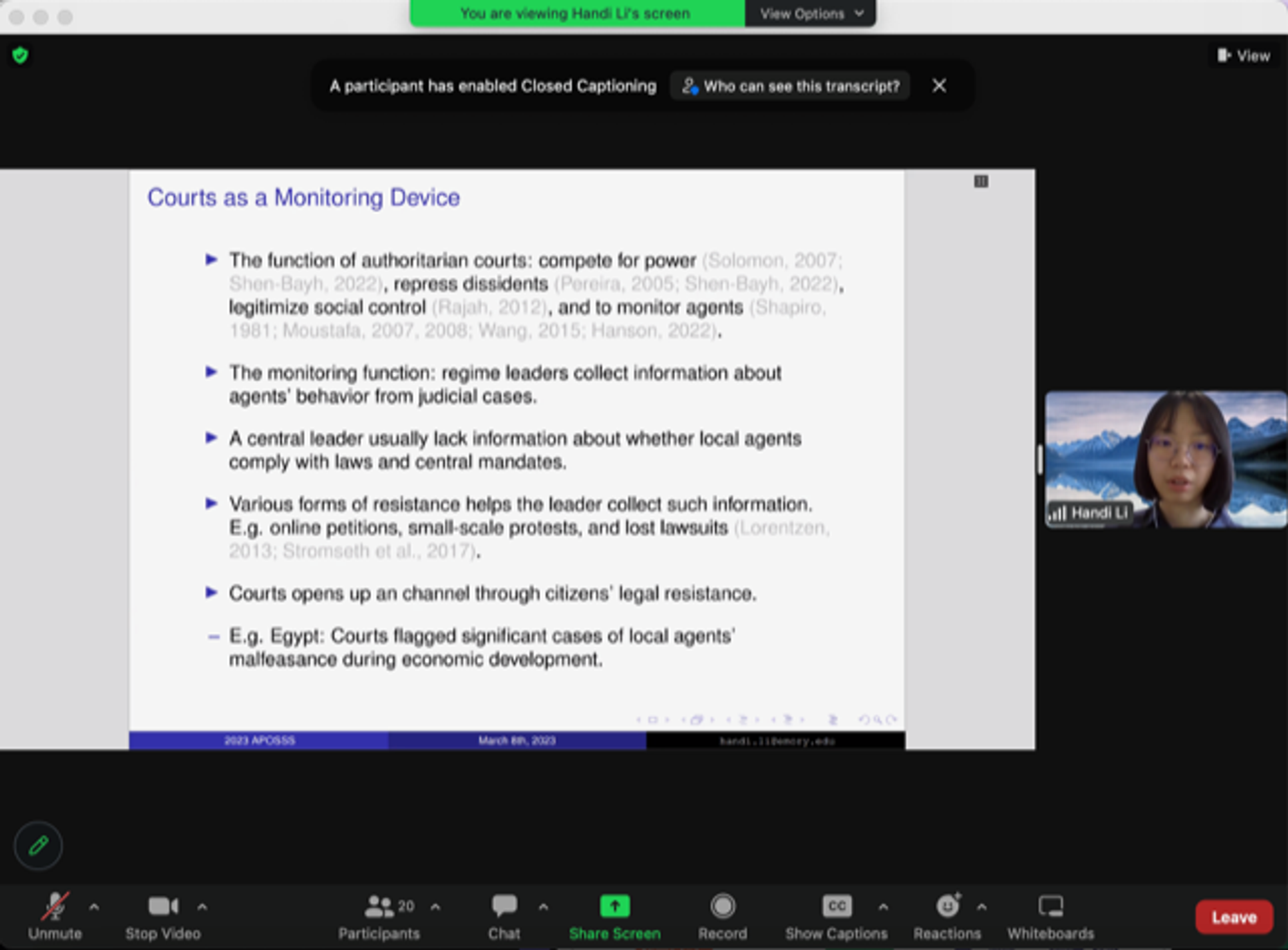APOSS 97 - Handi Li
Affiliation
Peking University and Princeton University
Date
March 8, 2023
9-10:00AM JST
Discussants
Coauthors and affiliations
Keywords
transparency, legal resistance, China
Abstract
A number of authoritarian countries have adopted transparency laws in the 21st century. This study investigates the effect of such transparency on legal resistance in these countries. Existing literature suggests that authoritarian regimes can use courts to regulate local agents, which provides citizens an opportunity to challenge the agents. Does transparency contribute to the frequency and success of their challenges? We analyze original datasets of administrative litigation and transparency regarding local land expropriation in China, using a difference-in-differences design based on a transparency pilot program. We find that transparency encourages citizens to file lawsuits against local governments, but it makes citizens less likely to win. We further show that the perverse effect is driven by local judicial dependence. Although transparency provides citizens with information to challenge local governments, it also signals the regime's monitoring, which incentivizes more collusion between local courts and governments.
Status
Title
Transparency and Authoritarian Rule of Law: Mixed Effects of Open Government Information in China

